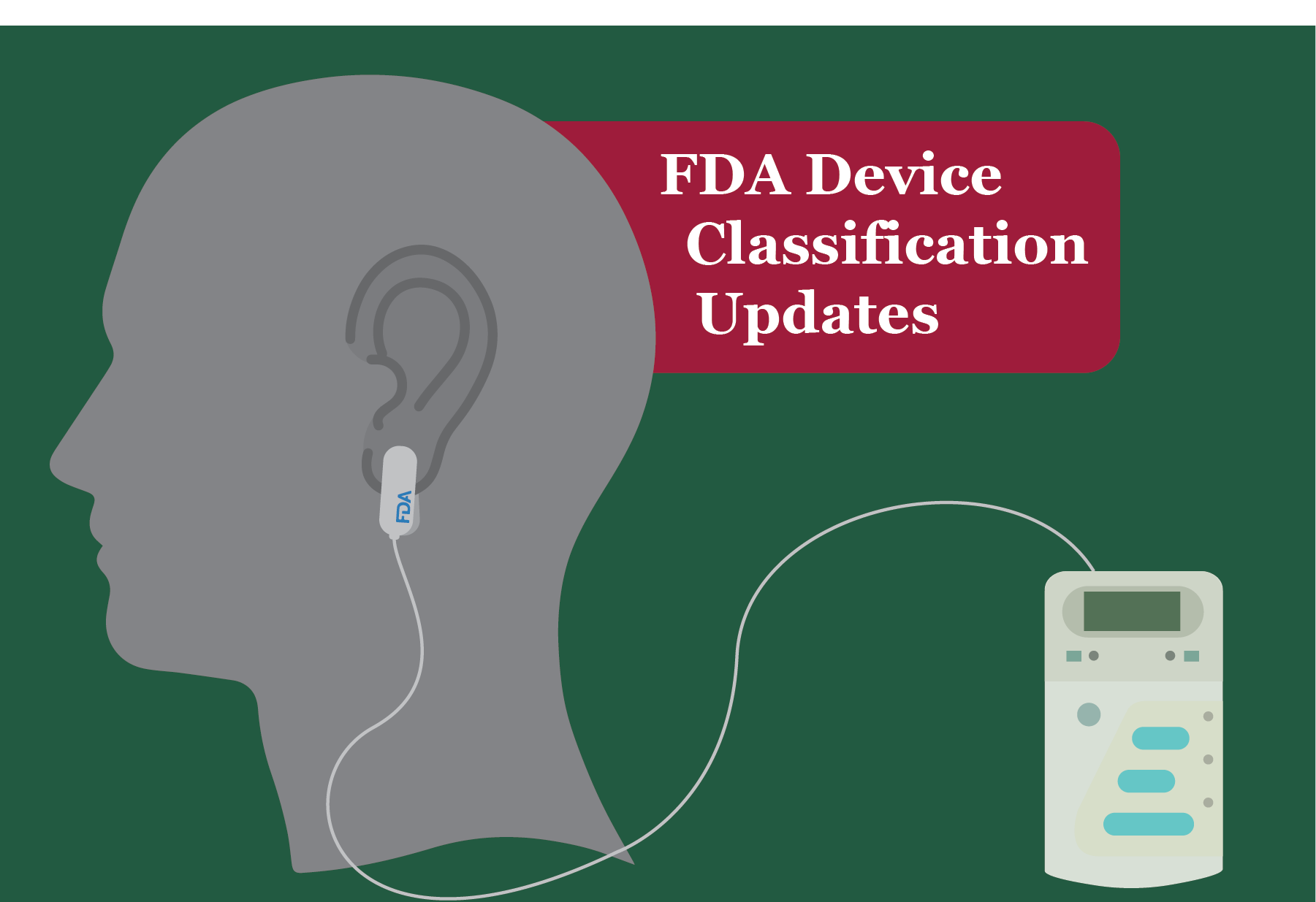The FDA released two final rules surrounding the classification, and the requirement to submit a pre-market notification, for some medical devices.
The final rule that went into effect on December 30,2019 adds to the current list of class I and class II devices that are exempted from the requirements to submit a pre-market notification. This rule also lists some limitations on the exemption applied to these devices. Partial exemption limitation is applied to specific medical devices for which the FDA believes that a premarket notification is necessary to assure its safety and effectiveness. In vitro devices that are intended for use in the diagnosis, monitoring and screening of neoplastic diseases, for assessing cardiovascular diseases, for use in diabetes management etc. fall under this category.1
A list of all exempted devices can be found on the Federal Register published by the FDA here:
Another final rule that went into effect on December 20, 2019, amended the classification and the pre-market requirements for some neurological devices. CES (Cranial Electrotherapy Stimulator) devices intended to treat anxiety and /or insomnia were previously classified as class III devices and are now down classified to class II with special controls and will require a 510 (k) premarket notification. A new product code will be issued for these devices. On the other hand, CES devices intended to treat depression will now require submission of a premarket application (PMA) to gain market authorization. Traditionally, commercially available devices that require a PMA after a final order is issued by the FDA may be distributed without a PMA for 90 days from the issuance date of FDA’s final order. However, for the currently legally marketed CES devices intended to treat depression, FDA does not intend to enforce compliance for an additional 90-day period (i.e. 180 days from the effective date of this final order). Manufacturers must however, submit a notice of intent to file PMA within 90 days of the effective date on this order.2
The notification of the intent to file a PMA should include a list of all model numbers for which a manufacturer plans to seek marketing approval through a PMA. FDA does not intend to enforce compliance with the PMA requirements with respect to an applicant of a currently legally marketed CES device intended to treat depression during the FDA’s review of the PMA. FDA also intends to review any PMA for the device within 180 days of the date of filing. 2 In the case of an intent to file PMA is not submitted to the FDA, and/or the device is not distributed for investigational use under an IDE, the device shall be deemed to be adulterated and subject to seizure and condemnation by the FDA if its distribution continues.2
EMMA International can help you to successfully navigate the FDA if your product has been impacted by these final rules issued last month. Give us a call at 248-987-4497 or email us at info@emmainternational.com to know more.
1FDA (Dec 2019) Medical Devices; Exemptions From Premarket Notification for Class I and Class II Devices retrieved on 1/14/2020 from https://www.federalregister.gov/documents/2019/12/30/2019-27394/medical-devices-exemptions-from-premarket-notification-for-class-i-and-class-ii-devices
2FDA (Dec 2019) Neurological Devices; Reclassification of Cranial Electrotherapy Stimulator Devices Intended To Treat Anxiety and/or Insomnia; Effective Date of Requirement for Premarket Approval for Cranial Electrotherapy Stimulator Devices Intended To Treat Depression retrieved n 1/14/2020 from https://www.federalregister.gov/documents/2019/12/20/2019-27295/neurological-devices-reclassification-of-cranial-electrotherapy-stimulator-devices-intended-to-treat






